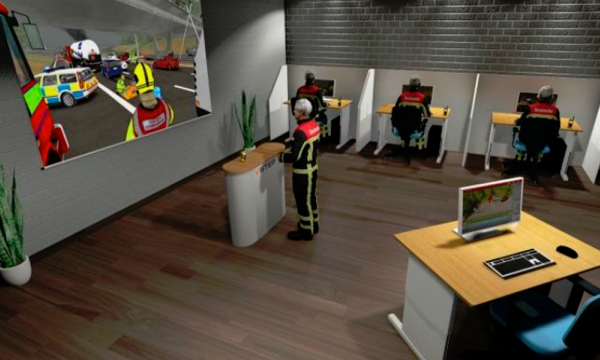The Naco Nogales Combined Cycle Power Plant, located in the city of Agua Prieta in the north of the State of Sonora (Mexico), has launched a new online project to train its emergency team members.
This project involves a “Virtual Training or Incident Command Simulator” that is capable of recreating the installations at the power plant in a virtual environment for emergency response practice by members of the emergency team and the incident command team using highly simple and intuitive methods. The goal is to increase the number of hours spent on practical training on the response to rare situations for which these individuals must be prepared.
In order to meet the legal requirement stipulated by the Secretariat for Work and Social Security, as well as part of the company’s Health and Safety Commitment, training is currently provided each year to members of the internal civil protection teams, and two or three fire or search and rescue simulations are conducted.
By using the virtual emergency simulator, these practical exercises can be conducted with minimal logistical resources and the quality of training can be increased. Specifically, the number of practical hours will increase from six hours in 2015 and 2016 to 16 hours in 2017, with monthly practice sessions of one hour for all first responders and emergency team leaders. Furthermore, it is possible for these sessions to be recorded and the decisions taken to be subsequently analysed and discussed, thereby enhancing the learning process for emergency team members.However, the most outstanding feature is that the sessions are conducted in a simulated environment in which participants see and act at their own plant and with their own equipment.
During a second stage, this training programme will be extended to all power plants in Mexico.
For Global Power Generation, having such an emergency simulator means standing at the cutting edge in terms of the technical resources it employs for the provision of safety training to its staff. This is essential given the location of most of its power stations, at which emergency team members are responsible for dealing with emergencies until such time as additional professional support can arrive from the nearby cities.

